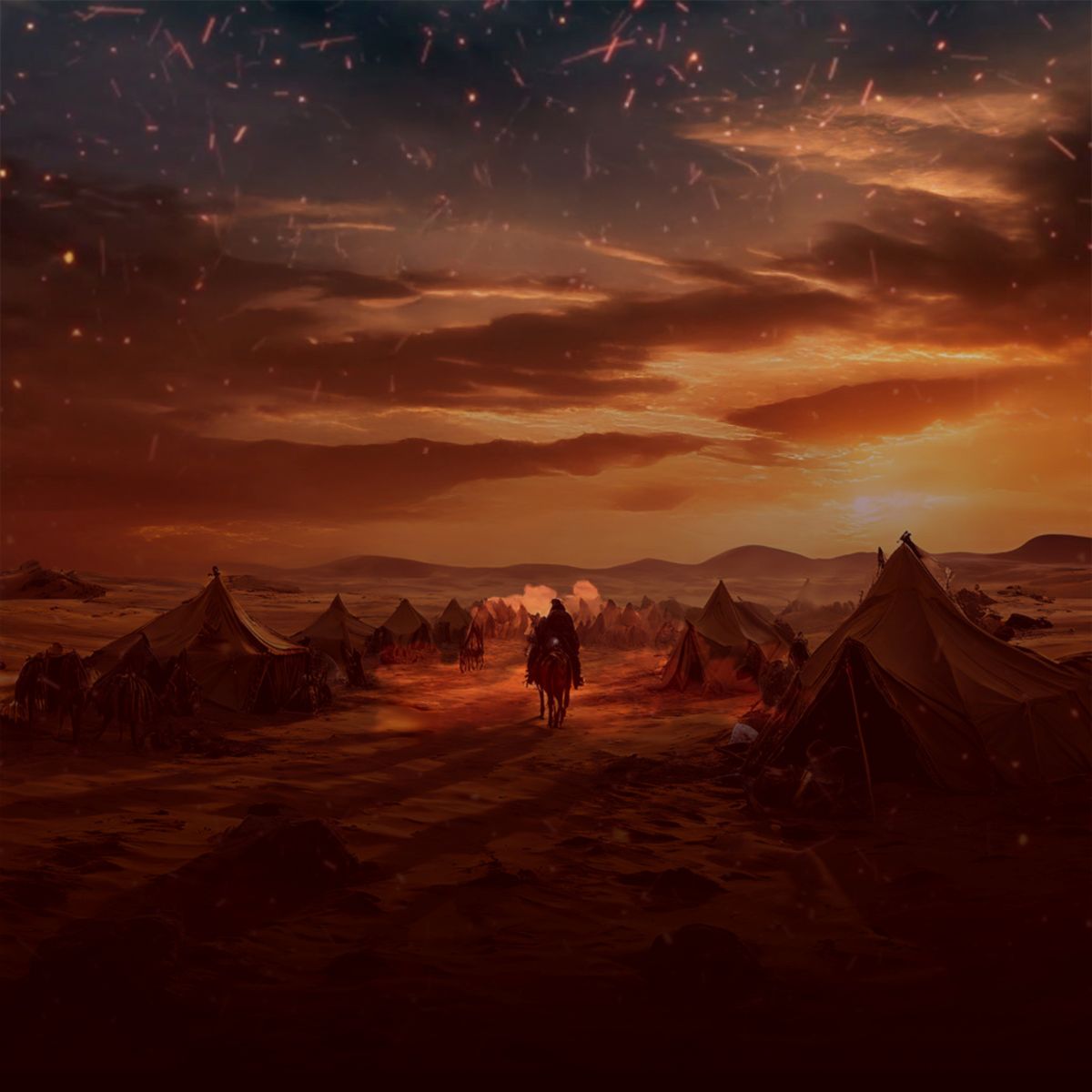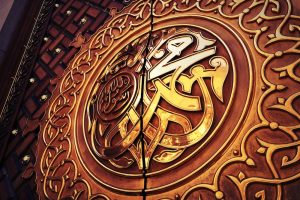
© Shutterstock
Farrukh Tahir, Toronto, Canada
The plains of Karbala (a city in Central Iraq) in 680 CE are forever stained with the blood of a family that stood against tyranny. It is a story that, for over 1,300 years, has reverberated across generations, inspiring movements, shaping theology, and offering moral clarity to the oppressed. But the tragedy of Karbala is not just a chapter in Islamic history; it is a mirror held up to every era, reflecting the choices societies make about truth, power, and justice.
From Prophecy to Politics: The Path to Karbala
The story begins with the passing of Prophet Muhammad (sa) in 632 CE, leaving behind a community transformed by his message and awaiting divine help to establish the Prophet’s (sa) succession. Following deliberations among the companions, Hazrat Abu Bakr (ra) was chosen as the first Caliph, establishing the system of leadership based on divine guidance, merit, piety, and community consensus rather than hereditary right. This model continued through the caliphates of Hazrat Umar (ra), Hazrat Uthman (ra), and Hazrat Ali (ra). However, near the end of this era, tensions began to emerge as the Islamic state expanded rapidly across continents.
Thus, Hazrat Ali (ra) faced unprecedented challenges. After Hazrat Ali’s (ra) assassination in 661 CE, his son Hazrat Hasan (ra) was chosen by those around him to become the leader of the Muslims. However, in order to keep the peace, Hazrat Hasan (ra) gave up his leadership role to Hazrat Mu’awiyah bin Abi Sufyan (ra), the governor of Syria, who had also been a companion of the Holy Prophet (sa). This was no ordinary agreement, but a fulfilment of the prophetic words of the Holy Prophet (sa), who said that Hazrat Hasan (ra) would bring peace between two large groups of Muslims.[2]
After Hazrat Mu’awiyah (ra) passed away, his son Yazid became heir. This would set the stage for the tragedy that would unfold at Karbala.
Prelude to Tragedy: The Rise of Yazid
In Islam, leadership is viewed as a trust, not a birthright.
That is precisely what is referred to as ‘trust’ in the following verse of the Holy Qur’an:
‘Verily, Allah commands you to make over the trusts to those entitled to them.’ [3]
Thus, Hazrat Husain (ra), the beloved grandson of the Holy Prophet Muhammad (sa), could not in good conscience pledge allegiance to Yazid. Yazid’s character, widely criticised even in classical Islamic sources, was antithetical to the values that Islam stood for and disconnected from the piety required of a leader.
Thus, Hazrat Husain’s (ra) refusal to bow before such leadership was not a political rebellion – it was a moral stance. Despite knowing that this stance might cost him his life, he held justice and rightful leadership as paramount. [4] And this adherence to justice shows his high moral character and righteousness.
With his family and a small band of loyal followers, Hazrat Husain (ra) set out from Makkah towards Kufa, a city in Iraq, responding to calls of support from its people. But as the political winds shifted, those promises of aid dissolved. Hazrat Husain (ra) was intercepted by Yazid’s army and forced to set camp in the arid desert of Karbala.
The Stand at Karbala: Martyrdom for Principle
On the plains of Karbala, Hazrat Husain (ra) and his companions faced a critical test. Denied access to water for three days, the small band of faithful – including women, children, and the elderly – endured thirst under the scorching desert sun. Yazid’s army, numbering in the thousands, surrounded them with an ultimatum: pledge allegiance to Yazid or face death.
On the morning of the 10th of Muharram – or October 10, 680 CE – Hazrat Husain (ra) addressed the opposing army one final time. He reminded them of his lineage as the Prophet’s (sa) grandson, questioned the justice of denying water to women and children, and affirmed that he would not compromise on principle even at the cost of his life.[5]
The battle that followed was as uneven as it was brutal. One by one, Hazrat Husain’s (ra) companions – many of whom were companions of the Holy Prophet (sa) or his close family – stepped forward to defend him, each falling under the overwhelming force.
As the day wore on, Hazrat Husain (ra) stood increasingly alone. Weakened by thirst and grief, he fought valiantly until he too was struck down. In his final moments, as he prostrated in prayer, the enemy descended upon him and severed his head. His body lay there, covered with wounds from arrows, spears and swords, while his head was put on a spear as a gruesome trophy for Yazid.
Why Muharram and Karbala Still Matter
The martyrdom of Hazrat Husain (ra) is not simply commemorated in Muharram for its emotional resonance, but because it confronts a timeless struggle: the corrupting lure of power and the cost of integrity. In an age where leadership is too often reduced to dynasty, popularity, or wealth, the principles Hazrat Husain (ra) stood for remain as necessary today as they were in the deserts of Karbala.
Islamic teachings are clear that leadership is a sacred trust, not an inheritance. The Qur’an – as quoted earlier – describes leadership as a duty that must be shouldered by those capable of justice. Most importantly, Khilafat is a divine institution wherein believers come together to elect a leader based on divine guidance.
Yazid’s leadership claimed the title of Khilafat, but his person did not embody the spirit of a true Caliph. Not only was his leadership as a result of his lineage – which has never been the foundation of Khilafat – he lacked the qualities of justice that the Holy Prophet (sa) advised to seek in a leader:
‘Indeed, the most beloved of people to God on the Day of Judgment, and the nearest to Him is a just leader…’[6]
Thus, Muharram comes as a reminder for Muslims all over the world to reflect on the leaders they choose to elect and follow, and as a reminder for leaders to ensure they duly uphold the trust they have been given.
A Mirror to the Modern World: Karbala’s Relevance Today
If the legacy of Karbala is about the moral courage to speak truth to power, then what does it say about our present world?
Today’s global political landscape is littered with leaders who ascend to power through manipulated elections, inherited positions, or populist slogans. Many mask their ambitions behind democratic facades, but their policies reveal imperialist and dictatorial tendencies. The promise of service has been replaced with self-interest. The language of unity is wielded to divide.
For decades now, His Holiness Hazrat Mirza Masroor Ahmad (aba), the worldwide Head of the Ahmadiyya Muslim Community, has been calling leaders to understand their duties to their people. On one occasion, he stated:
‘If leaders would act with justice, fairness, and compassion towards their citizens, then wars would end, people’s suffering would decrease, and peace would prevail. But sadly, most are blinded by their egos and power.’[7]
The world has seen the rise of regimes that demonise minorities, stoke nationalistic fervour, and scapegoat the vulnerable, all under the guise of patriotism or religion. From surveillance states to corporate-backed democracies, the integrity of leadership is under siege.
And yet, Karbala endures. It endures as a standard, as a challenge to every society: What kind of leaders do we accept? What kind of silence do we tolerate in the face of injustice?
In the face of Yazid’s tyranny, Hazrat Husain (ra) carried out the tradition that his grandfather, the Holy Prophet (sa), put forth for all contributing members of society:
‘The best Jihad (i.e., exertion) is speaking a word of truth in front of a tyrant.’[8]
Remembering Karbala, Reforming Ourselves
The memory of Karbala that is revived in the month of Muharram is a call to mission. It challenges every believer to rise against injustice, to speak truth when it is dangerous, and to preserve the sanctity of leadership. It rejects passive religiosity in favour of active righteousness.
But more importantly, Muharram is a month of reformation and reflection. Hazrat Mirza Ghulam Ahmad (as), the Promised Messiah and Reformer, states:
‘What is gained by the mourning in Muharram in memory of the martyrs of Karbala? One should grieve for one’s own self and should be anxious for their reformation. The biggest worry of a person should be the correction of his own self.’ [9]
Indeed, the invocation of Durood (special prayers for the Holy Prophet (sa) and his followers) is part of that reflection. As His Holiness Hazrat Mirza Masroor Ahmad (aba) has repeatedly advised:
‘If the month of Muharram teaches us any lesson, then that is for one to always send Durood [special prayers] upon the Holy Prophet (sa) and his family. In order to fulfil our duties towards the grand objectives set out by the Imam of the age, we must strive to send prayers upon the Holy Prophet (sa), occupy ourselves in prayers and try our utmost to bring about a pure change within ourselves. At the same time, we must demonstrate steadfastness when faced with adversaries who bear the characteristics of Yazid.’ [10]
About the Author: Farrukh Tahir is a missionary of the Ahmadiyya Muslim Community in Canada, serving on the editorial board of The Review of Religions.
ENDNOTES
1. Al-Sirah al-Halabiyyah (Beirut, Lebanon: Dar al-Kutub al-‘Ilmiyyah, 2006), Vol. 3, p. 405.
2. Sahih al-Bukhari, Kitab al-Sulh, Bab Qaul al-Nabi (sa) li al-Hasan bin Ali (ra)…, Hadith 2704.
3. The Holy Qur’an, 4:59.
4. Al-Tabari, The History of al-Tabari (Tarikh al-Rusul wa al-Muluk), Vol. 19, General Introduction and From the Creation to the Flood, trans. Franz Rosenthal, ed. Ehsan Yar-Shater, Bibliotheca Persica (Albany: State University of New York Press, 1989), 97.
5. Ibid, 123.
6. Jami’ al-Tirmidhi, Hadith 1329.
7. Friday Sermon, Hazrat Mirza Masroor Ahmad (aba), 12th November 2021.
8. Sunan Abi Dawud, Book 37, Hadith 4330.
9. Hazrat Mirza Ghulam Ahmad (as), Malfuzat – Vol. X (Farnham, Surrey: Islam International Publications Ltd., 2022), 233-234.
10. Friday Sermon, Hazrat Mirza Masroor Ahmad (aba), 10th December 2010.


As I read this powerful reflection on Karbala, my heart turns to the innocent souls in Palestine—families enduring unimaginable suffering while the world watches in silence. Hazrat Husain’s (ra) stand was not confined to history; it remains a mirror for every age, challenging tyranny and awakening conscience. May Allah grant Jannat to every righteous soul lost to oppression, and may He deal justly with those who inflict harm. Karbala reminds us that silence in the face of injustice is complicity. May we all find the courage to speak truth, uphold justice, and pray with sincerity for those who suffer today.
—Surah Al-Baqarah, 2:287 (Maulawi Sher Ali translation):
“Allah burdens not any soul beyond its capacity. It shall have the reward it earns, and it shall get the punishment it incurs. Our Lord, do not punish us, if we forget or fall into error; and our Lord, lay not on us a responsibility as Thou didst lay upon those before us. Our Lord, burden us not with what we have not the strength to bear; and efface our sins, and grant us forgiveness and have mercy on us; Thou art our Master; so help us Thou against the disbelieving people.”